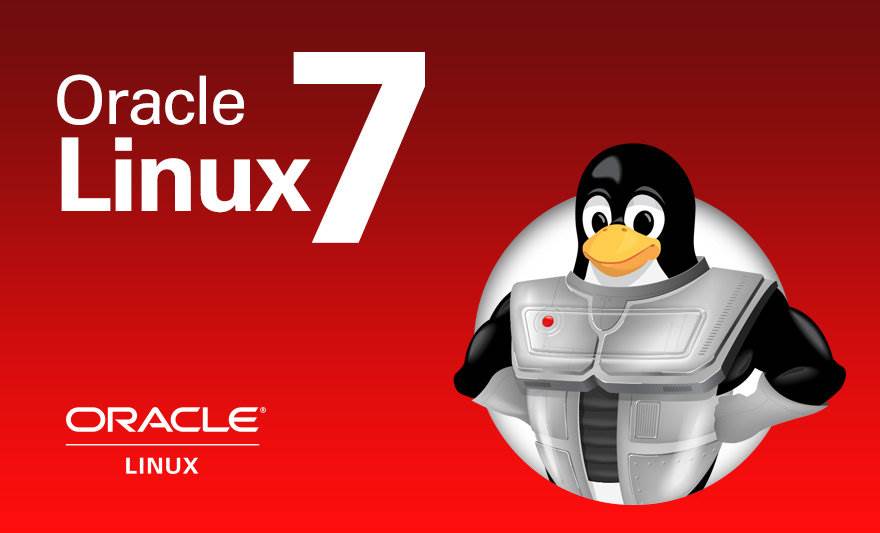Oracle Linux 8 Update 4 releases: an enterprise-class Linux distribution
Oracle Linux (OL, formerly known as Oracle Enterprise Linux) is a Linux distribution packaged and freely distributed by Oracle, available partially under the GNU General Public License since late 2006. It is compiled from Red Hat Enterprise Linux (RHEL) source code, replacing Red Hat branding with Oracle’s. It is also used by Oracle Cloud and Oracle Engineered Systems such as Oracle Exadata and others.
Potential users can freely download Oracle Linux through Oracle’s E-delivery service (Oracle Software Delivery Cloud) or from a variety of mirror sites, and can deploy and distribute it without cost.The company’s Oracle Linux Support program aims to provide commercial technical support, covering Oracle Linux and existing RHEL or CentOS installations but without any certification from the former (i.e. without re-installation or re-boot). via_Wiki
Oracle Linux 8 Update 4 releases.
Changelog
- Dynamic Programming Languages
- Updated module streams include python39:3.0, swig:4.0, subversion:1.14 and redis:6.
mysql-selinux packageincludes an SELinux module that provides rules for the MySQL database.
python-PyMySQL package has been updated to version 0.10.1. This package is included in the python36, python38 and python39 modules.
python3-pyodbc package provides access to Open Database Connectivity (ODBC) databases.
- Oracle Linux 8.4 provides the GCC Toolset 10, which is an Application Stream that is distributed in the form of a Software Collection in the AppStream repository. The GCC Toolset is similar to the Oracle Linux Developer Toolset.
- Infrastructure Services
Bind, updated to version 9.11.26, provides several bug fixes and enhancements over the previous version.
ghostscript, updated to version 9.27, provides fixes for several vulnerabilities.
Updated tcpdump provides the ability to capture RDMA traffic; as a result, you can also use the tcpdump command to view RDMA-capable devices, capture RoCE and VMA traffic, as well as analyze its content.
- Security
- Clevis, updated to version 15, provides numerous bug fixes and other enhancements over the previous version.
- fapolicyd, updated to version 1.0.2, provides numerous bug fixes and enhancements over the previous version
libreswan, updated to version 4.3, provides several fixes and improvements for IKE, IKEv2, IPSec, as well as the following other notable improvements:
adds support for IPsec-based VPN over TCP encapsulation, per RFC 8229
includes Internet Key Exchange version 2 (IKEv2) support of Security Labels for IPsec
OpenSCAP packages, updated to version 1.3.4, provide a fix for memory issues and leaks, as well as other fixes for issues that resulted in systems with large amounts of files to run out of memory; other notable changes:
A new RPM plugin that notifies fapolicyd about any changes during RPM transactions has been added; the RPM plugin replaces the YUM plugin because its functionality is not limited to YUM transactions, while also accounting for any changes made by RPM.
scap-security-guide packages, updated to 0.1.54, provide several bug fixes and improvements over the previous version, including an updated Operating System Protection Profile, a family of profiles that are based on ANSSI BP-028 recommendations.
Updated scap-workbench includes support for scanning remote systems by using passwordless sudo access; this improvement reduces the security risk that is imposed by supplying root’s credentials.
Red Hat Compatible Kernel (RHCK)
EDAC module included. (EDAC) kernel module, part of RHCK, primarily handles Error Code Correction (ECC) memory and detects and reports PCI bus parity errors.
Free memory page feature added. The Oracle Linux 8 host kernel is capable of returning memory pages that are not used by its VMs back to the hypervisor. This feature change improves the stability and resource efficiency of the host.
kmod-redhat-oracleasm package added. The kmod-redhat-oracleasm package has been added in this release. This package provides the kernel module part of the ASMLib utility. Oracle Automated Storage Management (ASM) is a data volume manager for Oracle databases. ASMLib is an optional utility that you can use on Oracle Linux systems to manage Oracle ASM devices.
Note: those features was formerly only available in the Unbreakable Enterprise Kernel.
Additional updates
Web Console includes Graphical Performance Analysis Capability with a new “View details and history” page, which is dedicated to analyzing the performance of a system by clicking View details and history on the Overview page.
Oracle Linux 8 Update 4 includes the following kernel packages:
kernel-uek-5.4.17-2102.201.3 for x86_64 and aarch64 platforms – The Unbreakable Enterprise Kernel Release 6 Update 2, which is the default kernel.
kernel-4.18.0-305 for x86_64 platform – The latest Red Hat Compatible Kernel (RHCK).





